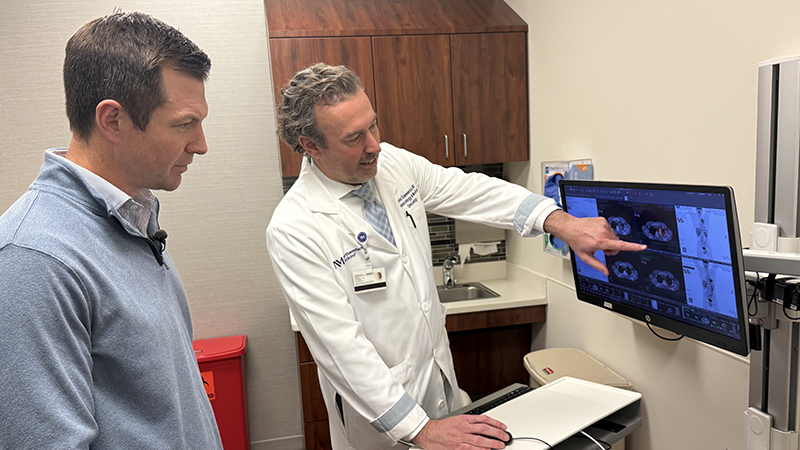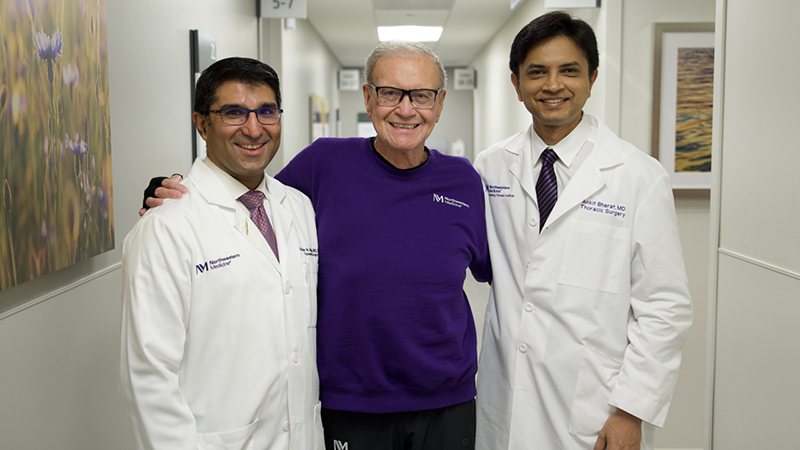What Does My Doctor Do?
Published September 2019
Exploring Unique Medical Specialties
If you’ve ever needed care beyond your annual exam with your primary care physician, you’ve likely encountered physicians who specialize in more focused areas of medicine.
“From the health of your heart to how you sleep, Northwestern Medicine has experts in more than 185 specialties,” says Northwestern Medicine Delnor Hospital Vice President and Chief Medical Officer Mark F. Daniels, MD. “Your primary care physician will refer you to the right specialist depending on the care you need, but as a patient, it’s important to be a partner in your own care and learn ‘who’s who’ at the hospital.”
Here’s a look at some unique areas of medicine.
Cardiology
Heart disease is the leading cause of death in the United States. Cardiologists care for the heart and vascular system — veins and arteries. They can offer preventive care for cardiac health and they may treat:
- Coronary artery disease, including artery blockage or heart attack
- Heart failure, including cardiomyopathy and pulmonary hypertension
- Heart rhythm disorders, including atrial fibrillation
- Heart valve diseases
- Vascular diseases, including aneurysms and blood clots
Oncology
After heart disease, cancer causes the most deaths in the U.S. every year. Oncology is the diagnosis and treatment of cancer. There are many subspecialties of oncology that focus on certain types of cancer, such as:
- AIDS-related cancer
- Blood cancer
- Brain and spine cancer
- Breast cancer
- Dermatologic cancer
- Gastrointestinal cancer
- Cancer of the prostate, bladder, testes and kidneys
- Cancer of the female reproductive system
- Head and neck cancer
- Leukemia
- Lung cancer
- Orthopaedic and rheumatologic cancer
- Pediatric cancer
Neurology
Neurologists diagnose and treat diseases and injuries of the brain, spine and nervous system, ranging from acute to chronic conditions. These may include:
- Amyotrophic lateral sclerosis (ALS)
- Back, neck and spine disorders, injuries and deformities
- Brain, spine and skull base tumors
- Epilepsy
- Headaches and migraines
- Cerebral aneurysms and vascular issues in the brain or spine, like stroke
- Multiple sclerosis (MS)
- Diseases affecting memory, behavior and cognitive functions
- Movement disorders, such as Parkinson’s disease, Huntington’s disease and Wilson disease
- Sleep medicine
- Spinal cerebrospinal fluid leaks
Endocrinology
Your endocrine system is comprised of glands that produce the hormones regulating metabolism, reproduction, sleep, growth and development, and mood. The endocrine system includes:
- Pancreas
- Thyroid
- Pineal gland
- Hypothalamus
- Adrenal glands
- Pituitary gland
- Ovaries
- Testes
- Many other organs that respond to, change or metabolize hormones
Endocrinologists specialize in the diagnosis and treatment of cancers and diseases of the pituitary, thyroid, parathyroid and adrenal glands; diabetes and metabolic disorders; diseases of the ovaries and testes; and osteoporosis.
Otolaryngology (Ear, Nose and Throat)
Ear, nose and throat (ENT) physicians specialize in diagnosis, treatment and rehabilitation relating to diseases and disorders of the head and neck. Otolaryngologists cover conditions related to:
- Hearing
- Balance
- Smell
- Taste
- Voice
- Sinus and nasal disorders
Hematology
Diseases of the blood and blood components, including blood and bone marrow cells, are diagnosed and treated by hematologists. While they mainly deal with cancers, these specialists can diagnose and treat a variety of diseases, including:
- Anemia
- Infection
- Hemophilia
- Blood-clotting disorders
- Leukemia
- Lymphoma
- Multiple myeloma
- Thrombotic disorders
- Myeloproliferative disorders
- Hemoglobinopathies (including sickle-cell disease)
Nephrology
Your kidneys are your body’s waste management system. Structures within them called “nephrons” help filter your blood to remove waste, which you release as urine. Nephrologists provide diagnosis and treatment for disorders and diseases of the kidneys, as well as hypertension (high blood pressure) disorders.
Rheumatology
When you think of arthritis, you may envision someone older, but arthritis and autoimmune diseases can affect people of all ages. Rheumatologists focus on the diagnosis and treatment of diseases that affect your body’s connective tissues — muscles, joints and bones — from gout to rheumatoid arthritis to osteoporosis.
Maternal Fetal Medicine
Maternal fetal medicine physicians offer care for women facing a high-risk pregnancy. Among the services they provide:
- Amniocentesis (testing the amniotic fluid)
- Cervical cerclage (closing the cervix to prevent miscarriage)
- Chorionic villus sampling (testing the placenta)
- Diagnostic 2-D, 3-D and 4-D ultrasound
- Fetal echocardiogram (to check for abnormalities in the baby's heart)
- Fetal therapy
- Genetic testing
- Preterm birth risk screening
Maternal fetal medicine physicians typically collaborate with, rather than replace, an OB/GYN specialist during pregnancy.
Curious about the other 185 or so specialties at Northwestern Medicine? Browse all areas of care here.





